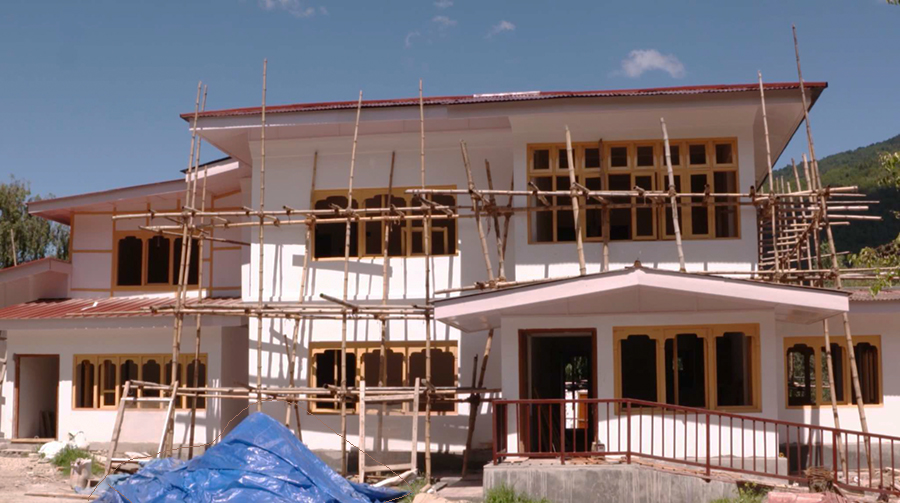
The PEMA Secretariat is building ‘PEMA Home’ in Thimphu to support children in difficult circumstances and those in conflict with the law. Set to open by the end of next month, this facility will provide a dedicated interim shelter, offering a safe space for children. Pema Home aims to address mental health concerns, support survivors of violence, and provide alternative care and adoption options.
The PEMA Home is designed to act as a stabilisation home, addressing the immediate needs of children, including evacuation, psychosocial support, and necessary medical interventions.
Dasho Dechen Wangmo, Head of the PEMA Secretariat, said that this facility is not intended to overlap with existing services such as the Gawaling Home of RENEW, which provides long-term shelter.
“The objective of PEMA Home is to provide that safe haven for that child in difficult circumstances, children in conflict with the law, children who are abused, children who are abandoned, and children with severe mental health issues. So, that the Home is a transit place where we will stabilise the child socially, physically and mentally as well.”
The facility will have designated staff, including matrons and counsellors, available around the clock to act as caregivers.
The PEMA Secretariat will also collaborate with RENEW and Kidu Medical Services, with on-call doctors and psychiatrists to provide additional support.
The PEMA Secretariat is focusing on family intervention to enhance parents’ capacity to provide proper childcare, to reunite children with their families once adequate support is given.
The Head of the Secretariat said that there is currently no safe place for children who are removed from unsafe environments by protection officers.
The facility, being built by renovating a property in the Changangkha, will accommodate at least 15 children.
The Secretariat is also undertaking initiatives such as providing diversion and counselling services and working with school counsellors, district or thromde gender and child focal persons, CSOs, and local governments to reach vulnerable children across the country.
“If you feel that there is a child in distress, there’s a child that needs support. We’ve been saying that please reach out to us. We have a 24-7 hotline 1010 or 1098. For example substance use or alcohol, you know people should refrain from selling those to children, or cigarettes or drugs, because at the end of the day, a child is getting spoiled, or the child is getting affected.”
The Secretariat is also looking at addressing child protection in emergencies at the national level.
It plans to develop mechanisms to prevent and respond to violence against children during emergencies, such as disasters and pandemics.
Sonam Dendup
Edited by Sherub Dorji








